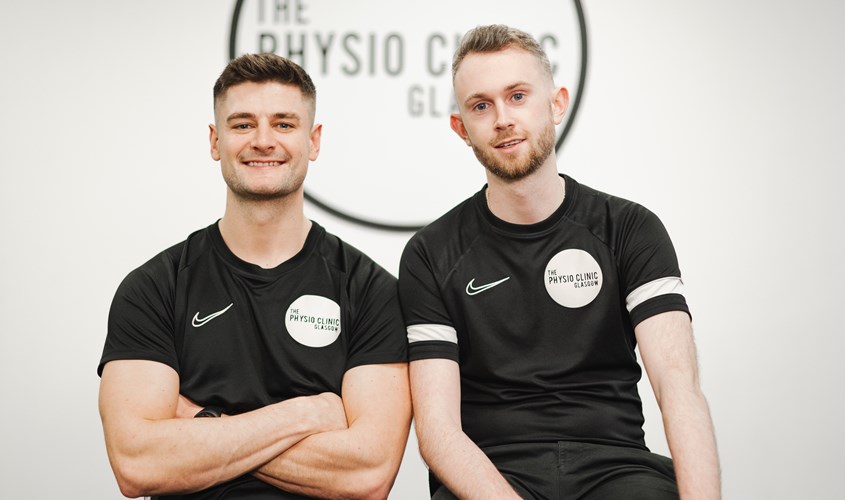Is walking good for ACL (anterior cruciate ligament) recovery? Find out more about ACL rehabilitation with The Physio Clinic Glasgow
Published: 13 October 2024

An ACL injury, or as it is commonly known, tear or rupture, refers to the tearing of the anterior cruciate ligament (ACL). The ACL is the ligament which is fundamental in stabilising the knee joint. The ACL connects the thigh bone (femur) to the shin bone (tibia) and is crucial for proper knee movement and stability.
This injury is common among athletes, particularly in sports that involve sudden stops, pivots, changes in direction or jumping. Those who play sports such as football, rugby and hockey often suffer from ACL injury.
If you have torn your ACL, you will likely suffer from one or more of these symptoms:
- A loud "pop" sound at the time of injury
- Severe pain and inability to continue activity
- Rapid swelling of the knee
- Loss of range of motion
- A feeling of instability or "giving way" with weight-bearing
Physical therapy is an important part of treating an ACL injury either instead of or after surgery. At The Physio Clinic Glasgow, we believe in providing an evidence-based practice. Our team understands the toll that an injury like this can have, both physically and psychologically. Our experienced team of physiotherapists will take the time to assess, plan and explain your injury and rehabilitation plan.
What is ACL reconstruction surgery?
ACL surgery, or anterior cruciate ligament reconstruction, is a common knee surgery used to repair or replace the torn ACL in the knee. The ACL is crucial for knee stability, especially in movements involving pivoting, jumping, or sudden changes in direction. ACL surgery is a significant but common procedure for treating ACL injuries, especially among active individuals and athletes, providing a pathway back to active lifestyles following injury.
When should you start ACL rehabilitation?
Beginning physiotherapy as soon as possible after ACL surgery is a key aspect of recovery. Most patients are surprised to learn that physiotherapy begins within one week of surgery.
So, when can you walk after ACL surgery?
For athletes or those who enjoy sports, the idea of having to spend any time off of their feet is a dreaded nightmare. The timeline for starting to walk after ACL surgery can vary significantly depending on several factors. However, the good news is that in most circumstances, walking is encouraged early in your rehabilitation programme.
-
Immediate Post-Op (0-2 weeks): Immediately post-surgery walking may start with the assistance of crutches to put weight on operated knee in a controlled way. The goal during this period is to protect the graft and allow initial healing. Weight-bearing can often begin as tolerated, based on advice and the patient's pain levels.
-
Early Recovery (2-4 weeks): Patients may start to gradually put more weight on the leg if the knee shows good stability and pain is manageable. Some may be able to walk short distances without support or switch to using just one crutch or a cane.
-
Intermediate Recovery (4-6 weeks): By this time, many patients can walk independently without crutches. The focus is on increasing the distance and duration of walking while maintaining good knee support.
-
Later Recovery (6-12 weeks and beyond): Most patients are walking comfortably without any assistance by this stage. The focus shifts towards normalising gait patterns, walking with a knee that fully straightens and continuing to minimise pain and swelling.
Contact The Physio Clinic Glasgow today
An ACL tear can be serious, and if not rehabilitated properly, complications can arise, which can have long-term negative affects on your mobility, strength and performance. Our expert team of qualified physiotherapists will carry out an initial assessment, provide a tailored rehabilitation plan, and ensure that you are not only walking as quickly as possible but running, jumping and changing direction.